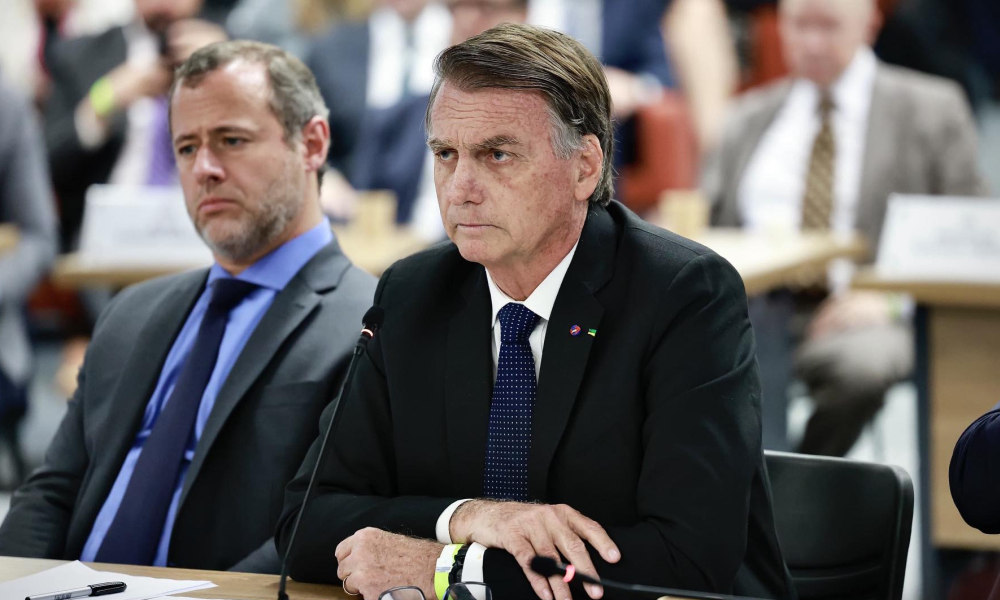Politics
Brazil’s top court places Bolsonaro under house arrest

Brazil’s Supreme Federal Court ordered former President Jair Bolsonaro to be placed under house arrest, citing repeated violations of court-imposed restrictions.
The decision, issued on Monday by Justice Alexandre de Moraes, comes amid worsening diplomatic tensions with the Trump administration over Bolsonaro’s legal troubles and the recent imposition of steep tariffs on Brazilian imports.
According to CNN Brasil, Moraes said Bolsonaro has “repeatedly failed to comply with precautionary measures” imposed during ongoing investigations. Under the new order, Bolsonaro is barred from receiving visitors—except for his lawyers—and may only communicate with individuals authorized by the court.
Bolsonaro is also prohibited from using a cell phone, either directly or through intermediaries, after his son, Senator Flávio Bolsonaro, video-called him during a protest in Rio de Janeiro on Sunday, CNN Brasil reported.
Moraes reaffirmed earlier restrictions that prevent Bolsonaro from contacting ambassadors or foreign officials and prohibit his use of social media.
“Failure to comply with the rules of house arrest or any of the precautionary measures will result in their revocation and the immediate decree of preventive detention,” the justice wrote in the ruling.
The court’s move follows escalating tensions between the Brazilian judiciary and the Trump administration, which announced a 50% tariff on Brazilian products beginning August 1, the highest rate currently applied to any country.
President Trump has publicly criticized Bolsonaro’s prosecution, calling it a “witch hunt” and “an international disgrace” in a letter to Brazilian President Luiz Inácio Lula da Silva. In the message, posted to Truth Social in July, Trump also linked Bolsonaro’s legal troubles and Brazil’s alleged censorship efforts to his decision to impose tariffs.
U.S. sanctions have also been imposed on Justice Moraes. According to NBC News, officials cited alleged human rights violations as the basis for the sanctions, which were enacted under the Magnitsky Act—a law typically used to target officials in authoritarian regimes.

-

 World1 day ago
World1 day agoEthiopian volcano erupts for first time in thousands of years
-

 Legal1 week ago
Legal1 week agoMichigan man JD Vance sentenced to 2 years for threatening Trump and JD Vance
-

 Politics1 week ago
Politics1 week agoU.S. to designate Maduro-linked Cartel de los Soles as terrorist organization
-

 Health1 week ago
Health1 week agoCambodia reports fatal H5N1 bird flu case in 22-year-old man
-

 Legal5 days ago
Legal5 days agoWoman in critical condition after being set on fire on Chicago train
-

 World5 days ago
World5 days agoHurricane Melissa registered 252 mph wind gust, breaking global record
-

 Politics1 week ago
Politics1 week agoEpstein survivors release PSA calling on Congress to release all files
-

 Legal4 days ago
Legal4 days agoSuspect in San Diego stabbing shot by authorities after fleeing into Mexico




